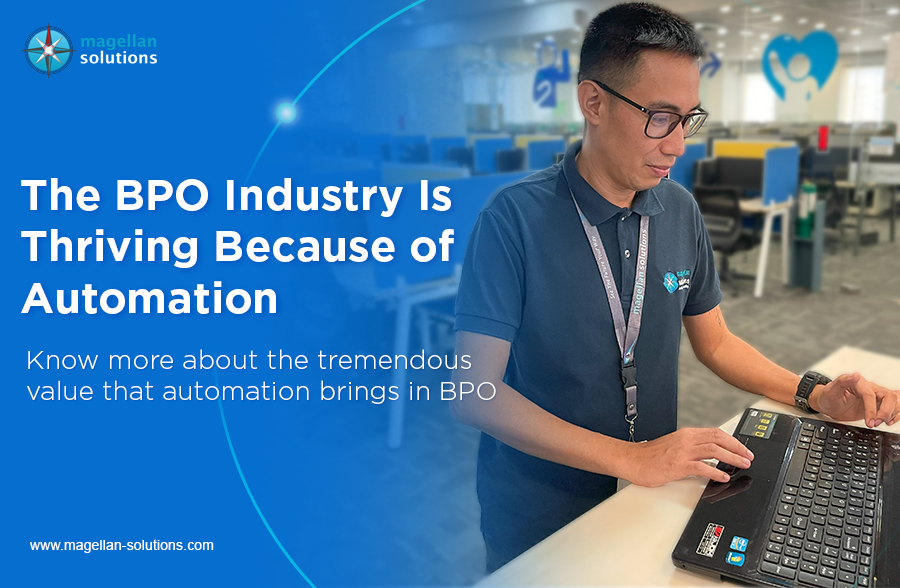Schedule a FREE call with our outsourcing expert now and get a precise quotation that meets your requirements. Don't wait - get started today!
Healthcare Shared Services for your Medical Center
There’s no denying the healthcare industry’s importance and urgency because protecting people’s lives and health is essential. This is an industry that doesn’t like taking risks or making mistakes.
But health care is still its own business. Even though it’s a unique and vital business, it’s still a business. Like any other organization, healthcare has its standards and requirements.
Healthcare facilities always look for ways to keep their operations organized and running smoothly. This is so they can give the best care to their patients. And do their jobs to protect and preserve life.
While healthcare BPO is making rounds in the industry and is providing solutions for many different business functions in a clinic or a medical center, other existing business strategies aim to optimize business operations, which can also be of good use to healthcare.
Healthcare Shared Services – What You Need To Know
Shared services are not a concept for some, as the practice is being applied to many businesses, especially in small and medium-sized enterprises (SMEs), where saving money and time is of the essence.
Aside from saving money, many businesses prefer shared services simply because they work. It saves on hiring and operational costs and keeps the process intact.
But what is shared services anyway?
Shared Services
Shared services is precisely what its name suggests:
It’s a business strategy that allocates multiple duties to one department. They hire “shared services” to organize the workflow and save money.
Healthcare shared services mean applying the concept of shared services in the healthcare sector. For a busy industry like healthcare, it’s always essential to keep processes organized and efficient. Or else there will be complaints, or worse, lives lost.
Shared Services & BPO
Healthcare BPO might seem more familiar to some, as many businesses already have it. From tasks such as customer service, hotlines, data processing and management, bill payment, and insurance collection, you’ll be surprised how much of a medical center’s daily functions are outsourced.
While healthcare companies are thriving due to the benefits of having a BPO to support their day-to-day operations, some companies prefer shared services, as they find them more fitting to their operational style.
But how different are shared services and BPO? And better, is one any better than the other?
How Similar Are Different?
Both business solutions aim to keep operations effective and organized and save time and money. But while both shared services and BPO are a means to an end, they can differ in nature and practice.
Business process outsourcing (BPO) is acquiring a third-party staff to handle specific business functions. BPO staff mainly specialize in providing services for a particular part, such as customer service, helpdesk, technical support, or more industry-specific services like IT, graphic design, and sales. This saves a business time and money by providing quality services minus any additional costs in hiring and operations.
Shared services, on the other hand, saves time and money differently. Instead of acquiring a third-party partner, it encourages business owners to maximize their in-house staff by assigning departments multiple responsibilities that might seem slightly different from their usual tasks but fit their skills just as much.
For example, administrative management and human resources could be combined since both are about ensuring the company is running well. This saves money and time and lets employees use their skills and potential to the fullest by giving them new tasks.
While both business solutions are attractive, it’s still essential to evaluate your business to make sure which is the right fit. Any business solution is guaranteed to bring results when done right.
Common Challenges & Proven Solutions in Healthcare Shared Services
Healthcare-shared services offer many benefits, but there are some obstacles healthcare organizations might face as they implement them. Here are the challenges and unique solutions they present:
- Challenge 1: Resistance to Change. Staff or departments may balk at adopting a new operational model, fearing job loss or disruption of the workflows.
Solution: Clear and open communication is paramount. Stress that shared services are intended to optimize processes, not eliminate jobs. Provide BI process and tools retraining and explain how the shift will ultimately result in better patient care.
- Challenge 2: Data Security Concerns. Patient data is incredibly sensitive. Ensuring its protection amidst other shared services is critical.
Solution: Institute cybersecurity protocols that adhere to HIPAA regulations. Choose a shared services provider that is well-versed in healthcare data handling. Set tight access controls and run regular security audits.
- Challenge 3: Implementation Costs & Time
Setting up a shared services model might incur initial expenses and require dedicated time from staff.
Solution: A phased approach allows for controlled implementation, minimizing disruption. Start by sharing a few functions, measure success, and then expand gradually.
Is Shared Services Right For Your Healthcare Business?
For the most part, Shared Services are still on a case-to-case basis. Some benefit a lot from it. Others find it complicated.
One of the biggest perks is all the time and money you’ll save. You’d be surprised how much the recruitment and hiring process can cost, not to mention the operational costs such as office space, additional supplies and software, and the salary you must pay.
In healthcare, there are many well-rounded professionals with different backgrounds. Shared services allow you to maximize the skills and performance of your staff while cutting down on expenses.
How to Select Ideal Functions for Healthcare Shared Services
Choosing the right candidates for shared services requires a good bit of forethought. Here’s a loose guide:
Start with Non-Core Functions: Consider essential functions but outside the broad area of patient care. Billing, administrative tasks, IT support, and HR are possibilities here.
Make a Note of Process Variability: Look for areas where centralization can help eliminate variance across departments to yield efficiencies of standardization.
Keep Cost Savings Front and Center: As a general rule, shared services can help reduce expenses in a big way if economies of scale are at play. Always give the first coat of paint to areas where those opportunities are greatest.
Making The Right Choice
Every business decision should be well thought out. Every step you take is essential, and whether to outsource or keep it in-house depends significantly on what your business needs to do better. Do your research and look at how your business is doing before you make a big decision.
In an industry like healthcare, where everything is crucial and can’t be compromised, ensure that every decision suits your business and those who benefit from it.
Magellan Solutions Keeps Healthcare Top Quality
Magellan Solutions believes in the essential duty of the healthcare industry to provide care and preserve life.
We were one of the first companies to start a local BPO industry, providing excellent BPO services to healthcare facilities worldwide. We are an outsourcing partner that is ISO-certified, HIPAA-compliant, and has been in the business for over 18 years. And we only offer high-quality services that meet international standards for performance and technology.
Trust only the best for your healthcare business. Talk to us today.
















